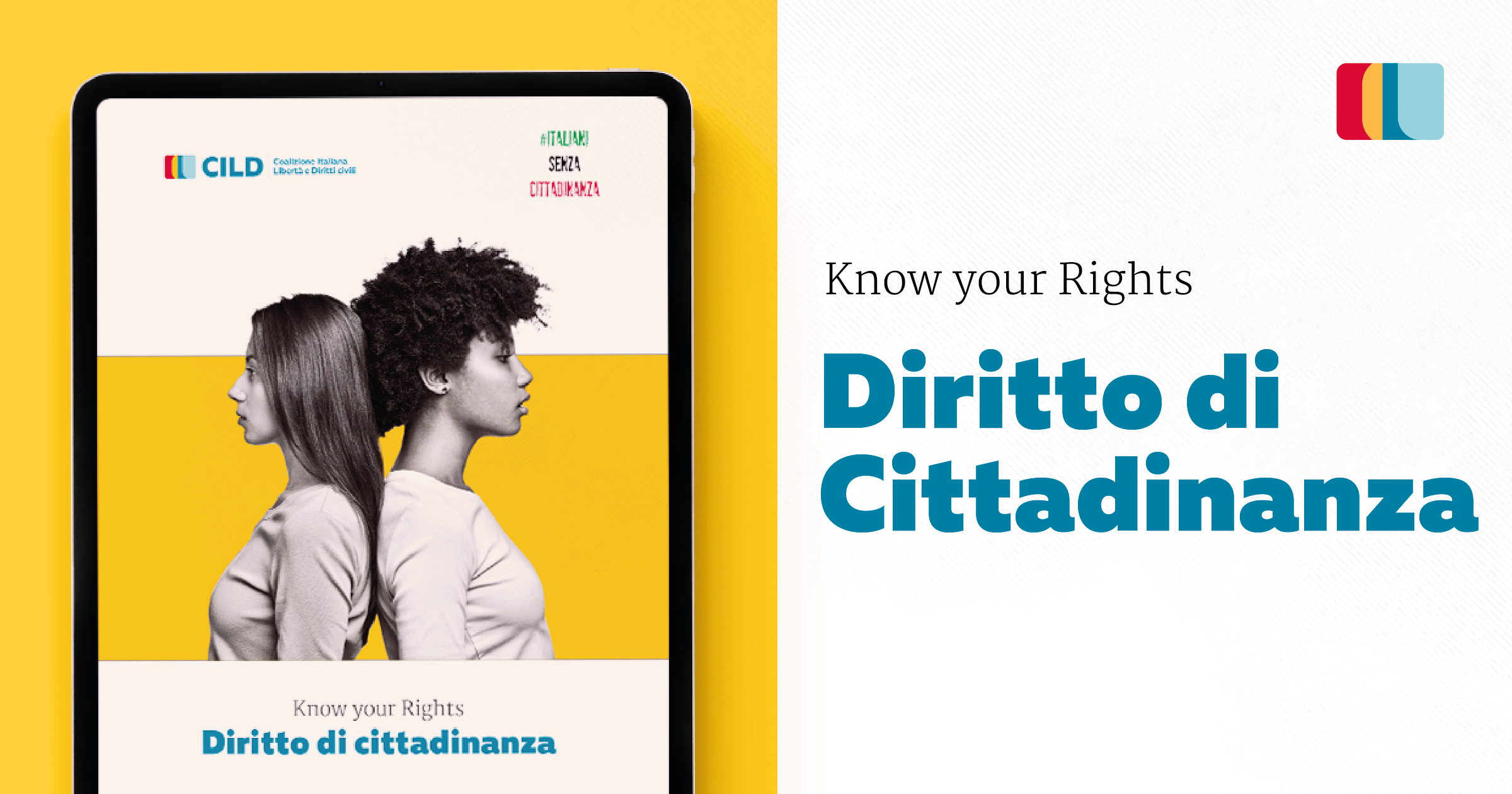Know your rights: our new guide to the right of citizenship
The attainment of Italian citizenship is regulated by Law no. 91 of 5 February 1992.
Law No. 91 is about to turn thirty years old – years during which many highly significant changes have taken place.
This law is out-of -date due to its underlying approach, which defined it in a past “delayed law”, thus this law was born “already old”. Therefore Law No.91 is unable, in the present, to cater to 858,000 students with foreign passports who grew up going to Italian schools and 1,078,000 minors without Italian citizenship who are noted within municipal registers.
These students are sons and daughters of today’s Italy to whom we owe an amendment of the Law on Italian citizenship, starting with providing for minors raised in Italy better opportunities to obtain citizenship and, for all foreigners, a procedure with fewer obstacles which can be completed in a more reasonable timeframe than iis the case now.
In waiting for a reform sufficient for Italy’s present and future, we have listened to the urgent request of non-recognized Italians and, together with Italians without citizenship, we have thought about how to provide a self-defense tool, with useful advice on how to face the long and tortuous administrative procedure for the attainment of Italian citizenship.
For this reason our “KYR-Right of citizenship” guide was born; a guide that today we are proud to publish.
The publication date we have chosen, June 15th, is not accidental.
“On June 15th 2017” – Paula Baudet Vivanco of Italiani Senza Cittadinanza (Italians Without Citizenship) explains – “a proposed reform of the law on citizenship finally arrived in the Senate, which we, Italians and non-recognised Italians, supported. For us it remains an important date both because we were in the Senate that day, witness to a historical moment for us, because it was the moment of most advancement up until that date, regarding a serious reform of discrimination against the youngest Italians. Four years ago, on June 15th, a majority of senators voted for the arrival of reform in the Chamber and this majority should have kept the promise made to children and adolescents of foreign origin who grew up in Italy”.
“We remember this date” – Baudet Vivanco continues – “because it makes us determined, together with CILD, to ask for more serious commitment from Italian politicians in resuming modifications to the law and because we are more aware that our lives matter in the present and that the time to resolve this impasse is now. For this reason, together with CILD, we also want to provide concrete support to those who have applied for citizenship or intend to apply for it and who find themselves alone struggling against an antiquated law full of obstacles and against a bureaucratic machine that seems insurmountable. “
WHAT YOU CAN FIND IN THIS GUIDE
This guide contains FAQs, answering the most frequently asked questions, on the procedure for obtaining Italian citizenship with a focus on specific topics (for example the requirements relating to income, legal residence, cohabitation) which statistically represent major obstacles to the obtainment of the citizenship.
Particular attention is given to minors and the acquisition of citizenship by naturalization. There are also FAQs to understand the meaning of some administration measures (for example the difference between a notice of rejection and a decree of rejection) to provide self-defense tools in the different stages of the procedure.
Finally, there are boxes with practical cases that we hope will help the reader to better understand the FAQs.
This guide was written by lawyer Gennaro Santoro, Dr. Martina Avigliano and journalist Paula Baudet Vivanco. We also thank lawyer Giulia Crescini and the activists of the Italians Without Citizenship movement for their collaboration.
For further information, check “The profiles of constitutional illegitimacy of the law on citizenship”. If after reading the guide you still have doubts you can send an email to legal@cild.eu and info@italianisenzacittadinanza.org.
Here the guide in English, Italian and France (thank you to Refugee Info for the translation in English and France)





